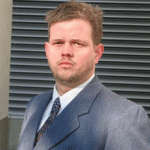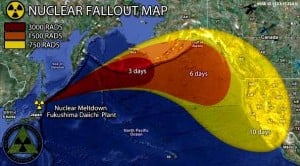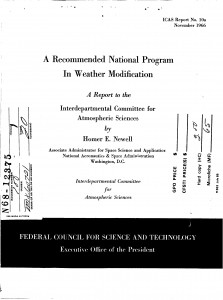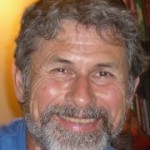Episodes

Wednesday Feb 11, 2015
Global Research News Hour - 02.09.15
Wednesday Feb 11, 2015
Wednesday Feb 11, 2015
Israel-Palestine and the Path to Peace
Conversations with Jeff Halper and Yves Engler. Global Research News Hour Episode 92

Monday Feb 09, 2015

Monday Jan 26, 2015
Monday Jan 26, 2015
On the Global Research News Hour this week, we spend the hour discussing the looming collapse scenarios facing the United States with Russian-American engineer Dmitry Orlov.
Orlov’s perspective on collapse is informed by his extended trips to his former homeland before and during its collapse.
Orlov believes and states that the former Soviet Union was set up to be resilient in the face of collapse. This, he believes is not the case in the US or Canada.
In this interview, Orlov also comments on the current situation with low oil prices, peak oil and its impact on agriculture, Russian moves in alignment with China, overtures toward the EU, the politics of austerity, the Ukraine Civil War as Anglo-Imperialist Departure Strategy, and much more.
Dmitry Orlov has written two books, Reinventing Collapse: The Soviet Experience and American Prospects as well as the Five Stages of Collapse: Survivors’ Toolkit. Mr. Orlov is also the author of the blog cluborlov.com and is a much sought after geo-political analyst.

Monday Jan 19, 2015
Monday Jan 19, 2015
Clear and Present Danger
We’ve heard about Anthropogenic (human-generated) Climate Change, and less frequently the threat of a nuclear war between rival super powers as the biggest threats facing humanity and life on this planet.
There are however less talked about dangers which are just as pressing and demanding of attention. Seldom are these perils confronted in any serious way.
The first of these, that will be explored in this week’s Global Research News Hour radio programme, is the threat posed by nuclear radiation from the nuclear industry.
The Fukushima-Daiichi nuclear facility, which became crippled by an earthquake and tsunami almost four years ago, is estimated to have released over 25 million billion becquerels of Cesium-137 radiation into the ocean in just the four months following the disaster. [1] According to a major study, in the 14 weeks following the Fukushima meltdowns, radio-active fall-out that descended on North America resulted in 14,000 excess US deaths. [2]
There are dozens of other nuclear plants in the US and around the world that could likewise melt down as infrastructure breaks down. Nuclear radiation in the air, water, and food supply represent a clear and present threat to all life on this planet.
Another critical concern is the amount of toxic material being deliberately being inserted into the atmosphere, apparently with the aim of affecting climate.
Commonly referred to as ‘chemtrails,’ the release of reflective microscopic particles by aircraft in order to affect the amount of sunlight reaching the earth is having an impact not only on weather, but on human, plant and animal health.
These and other weather modification techniques have been not only contemplated, but in effect for decades, as is well documented. (see document above.)
Yet, discussion of these artificial climate control mechanisms is virtually absent from all mainstream around climate change. In fact, like counternarratives around the 9/11 attacks, ongoing geo-engineering programs through ‘chemtrailing’, solar radiation management, HAARP (High Frequency Active Auroral Research Program ) and other mechanisms is commonly referred to as a ‘conspiracy theory’ in public discourse.
This week’s Global Research News Hour introduces these planetary perils with two outspoken, passionate and knowledgeable guests.
Mimi German is a self-described Earth Activist, with the grassroots group No Nukes Northwest, and is founder of Radcast.org which monitors radiation readings world-wide. She speaks to the nuclear question in the first half hour.
Dane Wigington has an extensive background in the field of solar energy, a licensed contractor and a former employee of Bechtel. The founder of the information site geoengineeringwatch.org, Wigington is convinced that geo-engineering is the number one threat facing humanity at present, and expands on his research in the second half hour.
Useful Resources for this week’s programme:

Monday Jan 12, 2015
Monday Jan 12, 2015
The year 2014 was notable not only for the political crises that often dominated the headlines, but very often for the way in which these events were distorted by the mainstream media.
Events overtaking Ukraine were a particular case in point. While the Western Press blames Russian President Vladmir Putin for the instability and tragic loss of life in the Eastern Donbass region, it consistently ignores the role of the West in backing the forces that overthrew the democratically elected government, and even employed Neo-Nazi operatives in the coup and subsequent anti-coup resistance.
Likewise, inadequate coverage of a new bogeyman in the form of the Islamic State, also known as ISIS or ISIL, has allowed political leaders like Canadian Prime Minister Harper to galvanize a confused and frightened public behind a neo-conservative program of military warfare and further erosions of our civil liberties.
Mainstream media generally works to foster agendas that serve elite purposes, and media plays a crucial role in providing the information and analysis that can help the public to determine responsible policies.
The Global Research News Hour and the Global Research website has tried to bring necessary critical perspectives during these historic times.
This week, on our first new radio broadcast of 2015, we provide a digest of some of the many stories we have covered over the previous year.
Includes contributions by Richard Sanders, Robin Philpot, Jon Rappoport, Yves Engler, Peter Dale Scott, James Petras, Henri Feron, Jacques Pauwels, Barrie Zwicker, Guy McPherson, Michel Chossudovsky, and Roger Annis.

Monday Dec 15, 2014
Monday Dec 15, 2014
“Followers of climate science will recall COP15 as the climate-change meetings thrown under the bus by the Obama administration. A summary of that long-forgotten briefing begins with this statement:
‘THE LONG-TERM SEA LEVEL THAT CORRESPONDS TO CURRENT CO2 CONCENTRATION IS ABOUT 23 METERS ABOVE TODAY’S LEVELS, AND THE TEMPERATURES WILL BE 6 DEGREES C OR MORE HIGHER. THESE ESTIMATES ARE BASED ON REAL LONG TERM CLIMATE RECORDS, NOT ON MODELS.’
“In other words, Obama and others in his administration knew near-term extinction of humans was already guaranteed.” -Guy McPherson, from the 2013 book Going Dark
On the occasion of the UN Climate Conference in Lima, Peru, this week’s Global Research News Hour examines the latest research into the causes of Earth’s current Climate predicament.
Guy McPherson is emeritus Professor of natural resources and the environment at the University of Arizona, He is the author of about a dozen books including Going Dark and his most recent, Extinction Dialogs: How to Live with Death in Mind.’ co-authored by Carolyn Baker. Guy is the author of the Nature Bats Last blog at www.guymcpherson.com.
Professor McPherson believes that there is virtually nothing humans can do to reverse the damage done by modern industrial civilization and that humans will likely become extinct as a result of runaway Climate change by the middle of the twenty-first century.
Professor McPherson explains his thesis of Near Term Human Extinction, the need to come to terms with the grief that goes along with that realization, the problems with geo-engineering as a remedy, and the problematic behaviour of both political leaders and mainstream environmental organizations in the face of the Climate Predicament.

Monday Dec 08, 2014
Monday Dec 08, 2014
“I don’t think that situation is going to be resolved anytime soon. The French went in, nearly two years ago.
They were claiming that their operation would only be for a few months and in fact now it’s approaching two years.
So, I don’t think that they really have a good grasp on what is going on inside the country…
I think the actual wealth of that nation is significant in terms of the overall West Africa region.” -Abayomi Azikiwe
This week returns listeners to the West African nation of Mali.
In early 2012, the Tuareg people led a revolt against the Malian government with the intent of seizing control of the Northeastern region known as the Azawad. [1] In March 2012, the Malian President, Amadou Toumani Touré, was ousted in a military coup, reportedly due to his poor handling of the situation. [2]
The following month, The Tuareg dominated National Movement for the Liberation of Azawad (MNLA) in alliance with the extremist Islamist group Ansar Dine, succeeded in wresting Azawad from Malian government control and declared it an independent State. [3]
Over the summer months however, the MNLA lost control of much of Azawad to the Islamist groups. [4][5] Following appeals for help from the Malian government, France sent forces down to secure the territory. They have maintained a force presence ever since.
While Mali may have fallen off the mainstream media radar over the past two years, talks between the Tuareg rebels and the US-backed Malian government have been ongoing. The most recent round of talks in Algiers ended without a peace deal, stemming manly from the failure of the Malian government to comply with demands from the Tuareg groups for more autonomy in Azawad.
With these developments, along with the recent announcement of more IMF loan guarantees to the Malian government,this week’s Global Research News Hour takes a closer look at the dynamics shaping the West African country with three guests.
Abayomi Azikiwe is Editor of Pan-African NewsWire. He has written extensively on the topic of Western, particularly US, involvement in the African continent, and the principally foreign interests being served by the US troop presence there. Azikiwe looks at Mali in a geo-strategic context.
John Schertow is the Winnipeg-based Editor and founder of Intercontinental Cry, an on-line magazine dedicated to reporting and chronicling Indigenous resistance struggles around the world. Schertow describes here some of the history of the Tuareg people and their claims to sovereignty in the African country.
Finally, Bamako-based film maker Moctar Menta talks about the film project aimed at making the wider world realize the origin of much of the world they buy, namely, Artisenal gold mines extracted by children as young as 6! A detailed report of the situation is available here.
People wishing to contribute to Intercontinental Cry during their fund-raising campaign should visit this site.
People wishing more background on child-mining in Mali should visit www.minorminers.org.

Monday Nov 24, 2014
Monday Nov 24, 2014
This episode of the Global Research News Hour takes a closer look at the October 22 Ottawa Shootings with guests Richard Sanders of the Coalition Opposed to the Arms Trade and Barrie Zwicker, author, journalist and media critic.
Sanders explains that there are parallels between the way the Harper government is capitalizing on the Ottawa shootings to advance a militarization of domestic and foreign policy, and the way the Borden government of 1914 used the first World War to undermine the rights of Eastern European immigrants and other ‘undesirables’ seen as a threat to the capitalist order of the day.
Barrie Zwicker goes one step further and makes the case that the shooting by lone gunman Michael Zehab-Bibeau may have been a false flag. That is, aided and abetted by elements of the State and Security apparatus. Among the issues he touches on in this discussion are the “lone nut” sceneario, common to many false flag situations, indications of fore-knowledge and a cover-up on the part of US media, and the prospects of US covert involvement in the event.
This interview is largely based around his recent article for Truth and Shadows, now posted on the Global Research website.

Monday Nov 17, 2014
Monday Nov 17, 2014
Veteran’s Tales
As noted in last week’s program, the myth of the soldier as guarantor of freedom and security for our fellow citizens has become wide-spread and reinforced in the imaginations of citizens, particularly in America, and lately in Canada.
We therefore see the “Support the Troops” monicker adorning bumpers and webpage banners.
Veterans’ Day and Remembrance Day ceremonies increasingly are, in the opinion of this author, becoming celebrations of the sacrifice of ‘heroic’ men and women who paid the ultimate sacrifice for their country. These sentiments overwhelm any sense of regret about the tragedy of their loss and the resolve to put an end to such military conflicts so future generations of soldiers (and civilians) need not suffer the same gruesome fate.
Even on Canada Day 2014, Prime Minister Stephen Harper in his public remarks, chose not to mention scientific, medical, artistic or other such achievements, nor the creation of the Charter of Rights and Freedoms, nor the debut of national projects such as publicly funded health care.
Instead he chose to focus almost exclusively on the accomplishments of our military personnel abroad, and the prowess of our Olympic and Paralympic athletes. Evidently, PM Harper seeks to transform Canada’s image away from the land of friendly ‘hosers’ to that of a Modern Day Sparta.
Not surprisingly then, this unthinking devotion to all things military has affected policy. It is fueling more US wars of aggression in the Middle East and prompting Canada’s enthusiastic support.
This week’s Global Research News Hour takes a close look at the toll war takes on the fighting men and women and particularly on the broader society. Critically, it examines the roots of the pro-war mentality that has gripped the imaginations of the people, and of the men in particular. This show also probes possible remedies that might potentially de-program members of the pro-war cult.
Both of the show’s two guests are veterans of the US Armed Forces, and have served in missions abroad. They are now staunch critics of US military adventurism.
Stan Goff began his military service in January, 1970 as an infantryman with the 173rd Airborne Brigade in Vietnam. His service took him to seven more conflict areas after Vietnam, including Guatemala, Grenada, El Salvador, Peru, Colombia, Somalia, and Haiti. He retired as a Master Sergeant from the US Army in 1996. He has taught military science at the US Military Academy at West Point. Over the last decade he has published a number of articles and three books, including Sex and War, and Full Spectrum Disorder: The Military in the New American Century. He currently authors the blog Chasin’ Jesus. His latest book, Borderline – Reflections on War, Sex, and Church from Wipf and Stock (Cascade Books) is expected to be released in February of 2015.
 Joshua Key who hails out of Guthrie, Oklahoma was trained as a US combat engineer was dispatched to Iraq in April of 2003. He claims to have witnessed numerous instances of abuse of the Iraqi civilian population by US forces, which went unaddressed by commanding officers. He fled the war for reasons of conscience at the end of 2003, and with his then wife and children in tow, made his way across the border to Canada in early 2005. He has sought and been denied refugee status in that country. Remarried to a Canadian, he along with other Iraq War Resisters and deserters are ‘living in limbo’ waiting for deportation orders back to the US where they face the prospect of dishonorable discharge and lengthy prison sentences for the crime of desertion. Joshua Key is the author, along with Lawrence (Book of Negroes) Hill of The Deserter’s Tale: The Story of an Ordinary Sold
Joshua Key who hails out of Guthrie, Oklahoma was trained as a US combat engineer was dispatched to Iraq in April of 2003. He claims to have witnessed numerous instances of abuse of the Iraqi civilian population by US forces, which went unaddressed by commanding officers. He fled the war for reasons of conscience at the end of 2003, and with his then wife and children in tow, made his way across the border to Canada in early 2005. He has sought and been denied refugee status in that country. Remarried to a Canadian, he along with other Iraq War Resisters and deserters are ‘living in limbo’ waiting for deportation orders back to the US where they face the prospect of dishonorable discharge and lengthy prison sentences for the crime of desertion. Joshua Key is the author, along with Lawrence (Book of Negroes) Hill of The Deserter’s Tale: The Story of an Ordinary Sold

Monday Nov 10, 2014
Monday Nov 10, 2014
One of the most devastating conflicts in history the First World War drew in all the major powers at the time. Eight and a half million soldiers and Six and a half million civilians are estimated to have perished in the war that was supposed to end war. [1][2]
Set off by a diplomatic crisis, triggered by the assassination of Austrian Archduke Franz Ferdinand in June of 1914, The Great War as it was known at the time lasted four bloody years. On November 11, 1918, Germany became the last of the Central Powers to capitulate and sign an armistice with the victorious Allied Powers, signalling the end of the war.
To this day, the 11th hour of the eleventh month is set aside to reflect and honour those military men and women who paid the ultimate cost to secure a more peaceful and just world. The occasion is referred to as Remembrance Day in the British Commonwealth.
The spirit of Remembrance Day has shifted in recent years, especially in Canada.
Following the centenary of the start of World War I, the Canadian Prime Minister credited the war as a critical ingredient in establishing the country as an independent nation. [3]Harper stokes national pride over Allied victories in Ypres, Vimy and Passchendaele rather than lament a tragic loss of life over a mostly pointless war. [4]
Cautionary warnings about the terrible toll of war with slogans like “Never Again” and “Lest We Forget” seem to have been eclipsed by imperatives to paint the sacrifices of military men and women serving the State (for whatever reason) as heroic and necessary.
Today, Remembrance Day may as well be called “Thank a Soldier for your Freedoms Day.”
Without disrespecting those who have died serving in past conflicts, it is worth reflecting during Remembrance Week on exactly why World War I and other twentieth century conflicts were waged in the first place. Were these wars truly for democracy, peace and democracy? Or were there more cynical motives being pursued by Canada and the other major powers?
To this end, this week’s Global Research News Hour interviews two prominent authors and dissident thinkers on the century old conflict known as World War I and Canada’s role in this and other military forays.
Yves Engler is an activist and author of numerous books on Canadian foreign policy includingThe Black Book on Canadian Foreign Policy, Canada and Israel: Building Apartheid and his latest The Ugly Canadian: Stephen Harper’s Foreign Policy.
Dr. Jacques Pauwels, Canadian historian and author of the 2000 book The Myth of the Good War: America in the Second World War . He has a French language book on World War 1 available now. An English version will be available in 2015.




